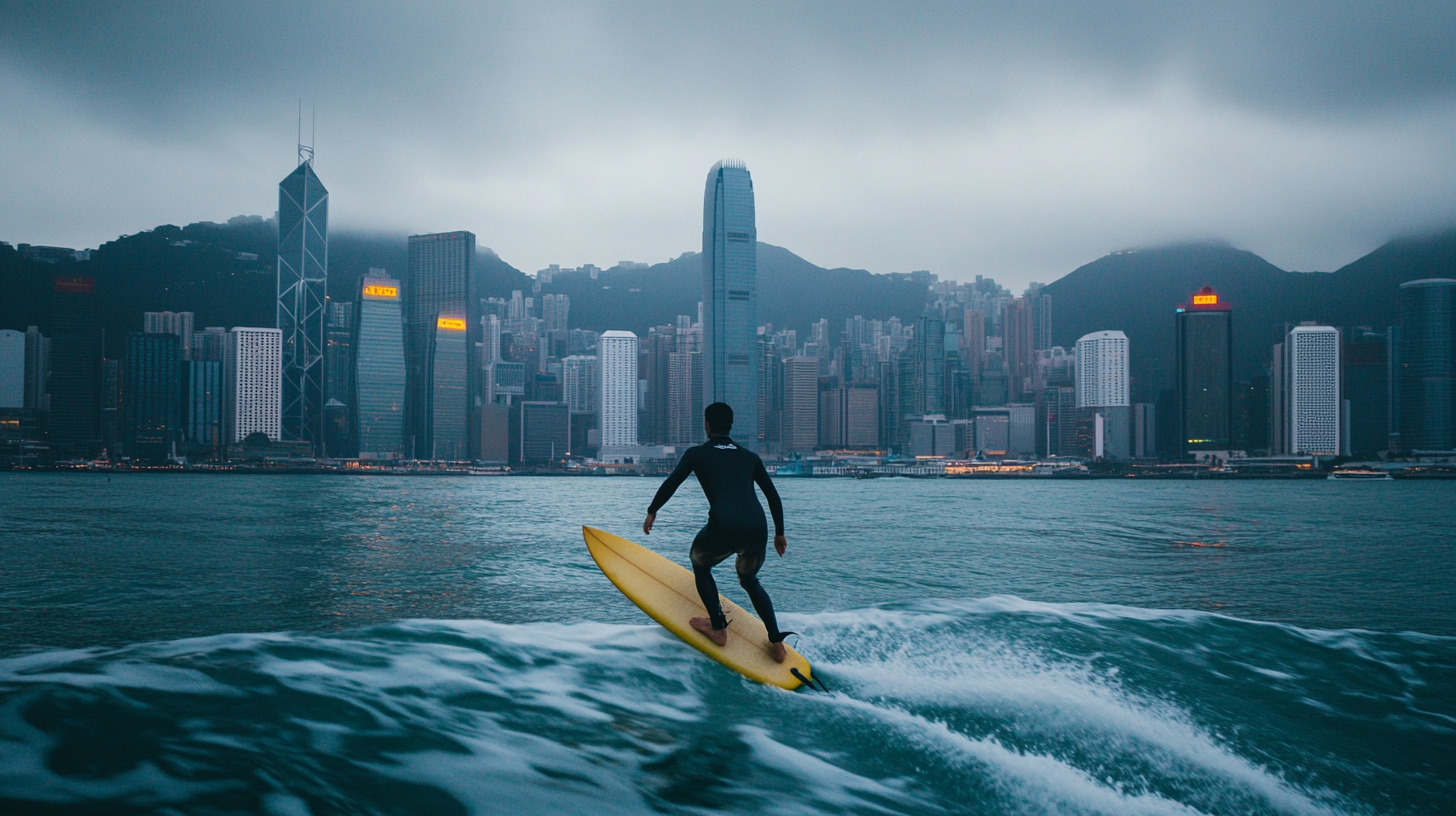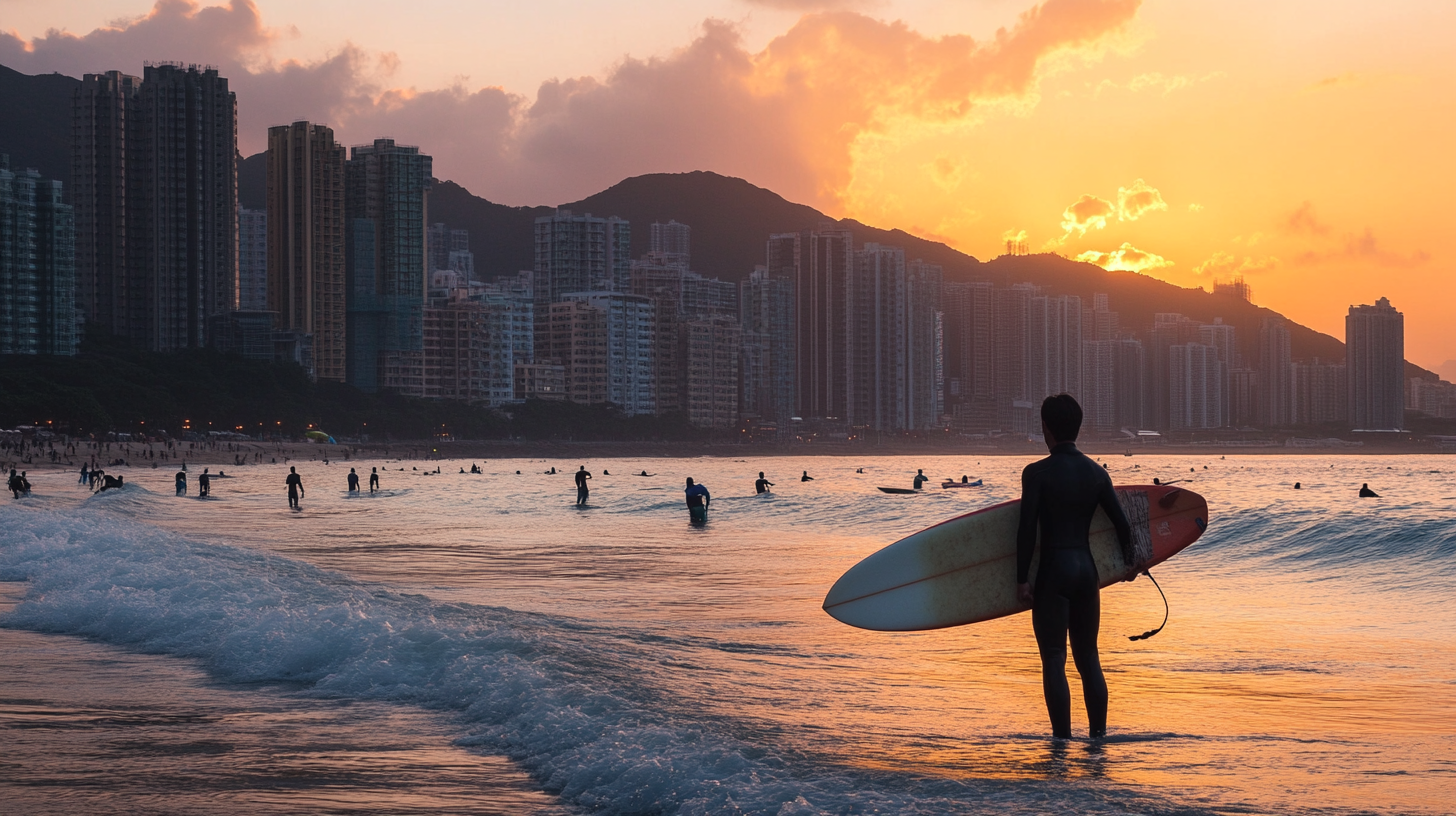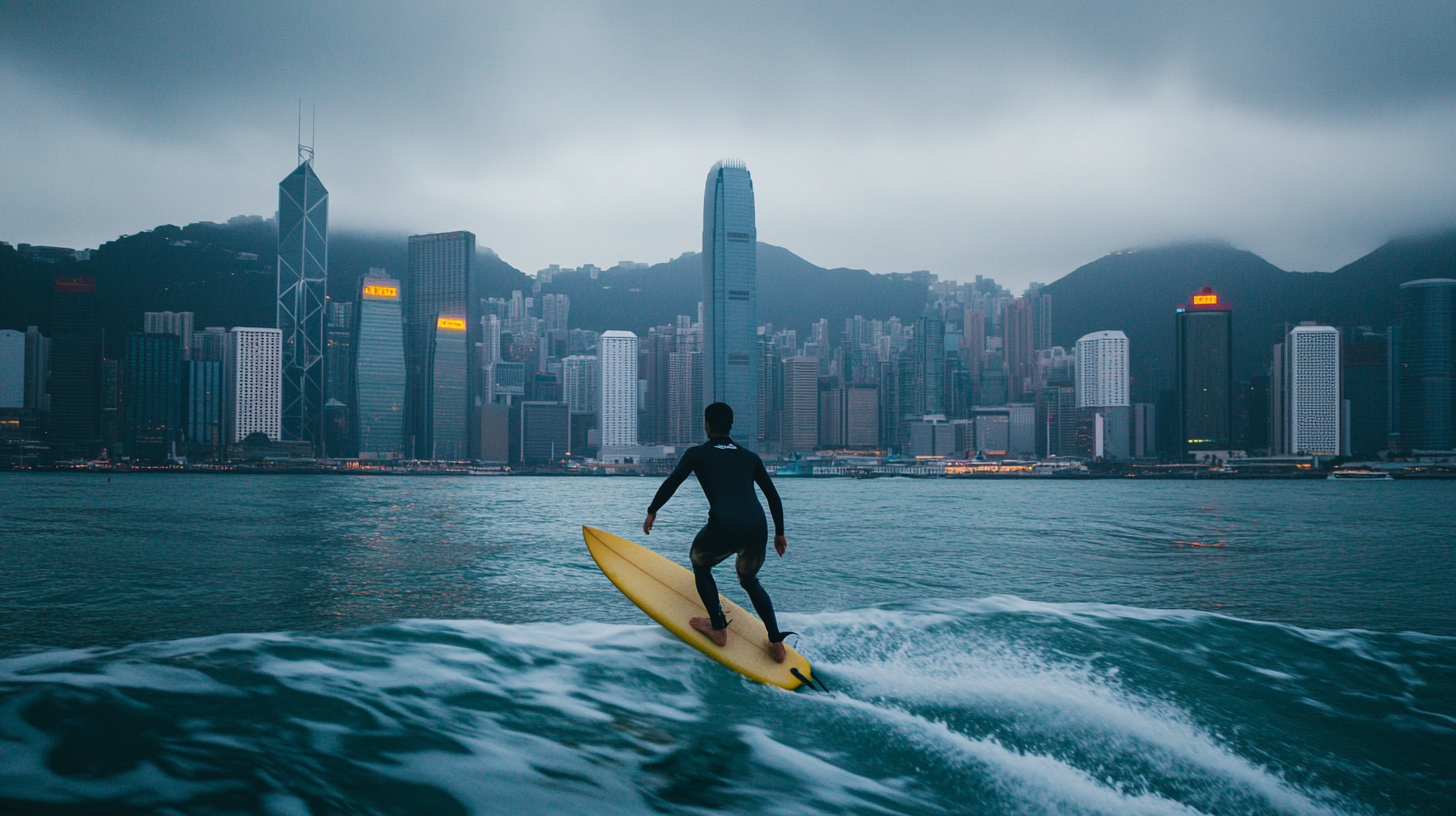

details of the surfing ban
In response to the ongoing COVID-19 pandemic, Hong Kong authorities implemented a series of restrictions aimed at curbing the spread of the virus, including a temporary ban on water sports such as surfing. The ban was introduced as part of broader social distancing measures, which included the closure of beaches and public recreational areas. The government cited concerns over large gatherings and the potential for virus transmission in crowded beach environments as the primary reasons for the restrictions.
The ban specifically prohibited all forms of water-based activities, including surfing, swimming, and kayaking, at designated beaches across the region. Despite the easing of some restrictions in other sectors, the ban on water sports remained in place due to the perceived difficulty in enforcing social distancing in open water and beach settings. Authorities have been conducting regular patrols to ensure compliance, with violators facing potential fines or other penalties.
While the ban has been in effect for several months, it has drawn criticism from some members of the local surfing community, who argue that surfing, in particular, is a solitary activity that poses minimal risk of virus transmission. However, officials have maintained that the ban is necessary to prevent people from congregating at beaches, where crowd control can be challenging.
potential legal consequences
Authorities in Hong Kong have made it clear that individuals caught violating the surfing ban could face significant legal consequences. Under current public health regulations, those found breaching the restrictions may be subject to fines or even criminal charges. The maximum penalty for violating the ban includes a fine of up to HK,000 (approximately AUD,300) and imprisonment for up to six months. These penalties are in line with the government’s broader efforts to enforce compliance with COVID-19 safety measures, which have included strict penalties for other forms of non-compliance, such as failing to wear masks in public spaces or violating quarantine orders.
In the case of the two surfers recently apprehended, authorities are reportedly considering whether to pursue legal action. If charged, the surfers could face not only the financial burden of a hefty fine but also the possibility of a criminal record, which could have long-term implications for their personal and professional lives. Legal experts have noted that while the courts may take into account the specific circumstances of each case, including whether the individuals were repeat offenders or if their actions posed a significant public health risk, the government is likely to take a firm stance to deter others from flouting the rules.
Additionally, there is the potential for civil liability if it can be proven that the surfers’ actions contributed to the spread of the virus, though such cases would be more difficult to establish. Nonetheless, the threat of legal repercussions serves as a stark reminder of the seriousness with which Hong Kong authorities are treating violations of the surfing ban, and it underscores the broader legal framework that has been put in place to manage the pandemic.
public response and safety concerns
The public response to the surfing ban has been mixed, with some expressing frustration over the continued restrictions, while others support the government’s cautious approach. Among the most vocal critics are members of the local and international surfing communities, who argue that surfing is inherently a low-risk activity when it comes to virus transmission. They point out that surfers are typically spread out in the water, often far from one another, and that the sport does not involve close physical contact. For these individuals, the ban feels disproportionate, especially when compared to other activities that have been allowed to resume under less stringent conditions.
However, public safety concerns remain a significant factor in the government’s decision to uphold the ban. Health officials have reiterated that the primary issue is not the act of surfing itself, but the potential for large gatherings at beaches, which could lead to overcrowding and make it difficult to enforce social distancing. Beaches, by their nature, attract not only surfers but also swimmers, sunbathers, and families, creating a situation where the virus could spread more easily. The government has stressed that the ban is part of a broader strategy to minimise the risk of community transmission, particularly in public spaces where people may be less vigilant about following health guidelines.
Some members of the public have expressed support for the ban, citing concerns about the potential health risks posed by crowded beaches. They argue that while surfing may be a relatively safe activity, the presence of surfers could encourage others to visit the beach, leading to a breakdown in social distancing measures. For these individuals, the temporary inconvenience of the ban is a small price to pay for the greater good of public health and safety.
At the same time, there are growing calls for a more nuanced approach to beach management, with some suggesting that authorities could allow surfing to resume under strict conditions, such as limiting the number of people allowed on the beach at any given time or designating specific areas for surfers. Proponents of this idea believe it would strike a balance between public health concerns and the desire to allow people to engage in outdoor activities that are beneficial for both physical and mental well-being.
Ultimately, the debate over the surfing ban reflects broader tensions between individual freedoms and collective responsibility during the pandemic. While many understand the need for caution, there is also a sense of fatigue and frustration as restrictions continue to impact daily life. As the situation evolves, it remains to be seen whether the government will adjust its stance on the ban or maintain its current position in the interest of public safety.
Legal implications of violating beach restrictions
Mate, if you’re thinking about sneaking a cheeky surf where you’re not supposed to, you might want to think twice. In Hong Kong, two surfers are now facing potential legal action after being caught breaking a surfing ban. Turns out, ignoring beach restrictions isn’t just a slap on the wrist – it can land you in some serious hot water.
Under Hong Kong law, violating beach restrictions can lead to fines or even jail time, depending on the severity of the breach. The authorities aren’t mucking around when it comes to enforcing these rules, especially when public safety is at stake. And let’s be honest, no one wants to swap their board for a courtroom appearance.
While the exact penalties for these two surfers haven’t been confirmed yet, it’s clear that the legal system is prepared to make an example out of those who flout the rules. So, if you’re thinking about catching a wave in restricted waters, you might want to reconsider – unless you fancy explaining your next surf trip to a judge.
Public safety concerns and enforcement measures
Now, let’s talk about why these bans exist in the first place. It’s not just about keeping surfers off the waves for the fun of it. Public safety is the big kahuna here. Hong Kong’s beaches can be unpredictable, especially during typhoon season, when conditions can turn gnarly faster than you can say “wipeout.” The authorities have a duty to protect everyone, and that means sometimes slapping a ban on surfing when the ocean’s throwing a tantrum.
Enforcement measures are no joke either. Lifeguards and police patrols are ramped up during these periods, and they’re not just there to hand out sunscreen. They’re keeping an eye out for anyone who thinks they can outsmart Mother Nature. And trust me, she’s not one to be messed with. If you’re caught ignoring the warnings, you’re not just risking a fine – you’re risking your life. And let’s face it, no wave is worth that.
But it’s not just about the surfers themselves. When someone gets into trouble in the water, it’s the rescue teams who have to put their own lives on the line to pull them out. So, when you break a ban, you’re not just being a rebel – you’re potentially dragging others into a dangerous situation. And that’s a pretty heavy burden to carry for the sake of a few waves.
So, while it might be tempting to sneak in a quick session when the beach is closed, it’s worth remembering that those restrictions are there for a reason. The ocean will still be there tomorrow, but if you push your luck, you might not be.

